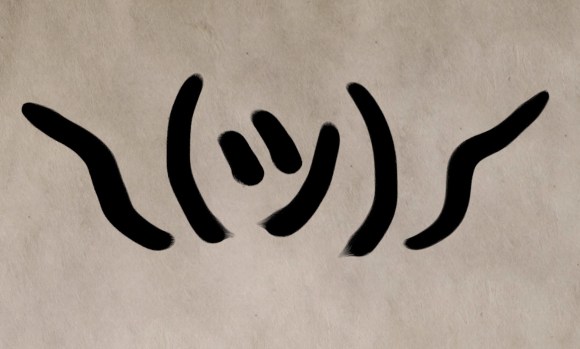
Sometimes obvious things are hidden right in plain sight and it takes the fresh perspective of someone in another part of the world to point it out. One Twitter user stumbled on such a hidden gem recently when searching the Japanese character for “tsu” , which in the katakana alphabet is written ツ.
As you can probably see from the image above and in the text of the previous sentence, the letter looks quite a lot like a smirking face. This may appear obvious to many Western readers, but according to online reaction most Japanese netizens were taken by surprise at this discovery and had never noticed the similarity. Perhaps even more surprisingly, the character is also apparently getting an unusual amount of use in Middle Eastern countries.
▼ “A katakana [ツ] is becoming kind of popular in Middle Eastern countries like Egypt and Saudi Arabia.”
https://twitter.com/6um/status/413613459918430210
Indeed, it’s hard to disagree that the resemblance to a face is there. It seems that the character is used either alone or with parentheses for a head and arms.
Here’s the reaction in Japan.
I didn’t see that at all.
This is an amazing discovery by the Arab people.
I had no idea.
This was a blind spot.
That’s cute.
How did this start?
Now I know how the Russians feel.
That last comment of course was in reference to the letter Д (De) used in the Cyrillic script of Russia and neighboring countries. It has become popular for use in Japanese emoticons due to its resemblance to a gaping mouth.
( ≧Д≦)
(; ̄Д ̄)
(#`д´)ノ
(/゚Д゚)/
With Japanese people now fully aware of tsu’s potential, they immediately began experimenting with a few variations, such as a raising “hand” by adding the katakana character “no” beside the face tsu can create when placed inside of parentheses:
(ツ)ノ
and even making it wave by following that with a half-width “shi” also in katakana it:
(ツ)ノシ
Perhaps if we put another full-width “shi” (シ) next to it, we can create a scene where one person’s head is being patted by another?
(ツ)/(シ)
Hmm, maybe not. If you think you can find a clever emoticon use for “tsu” be sure to let us know. If your PC keyboard supports Japanese text, then just type “tsu” and press F7 to change it to the katakana script. Or you could just go the easy route and copy-and-paste one of the many typed in this article.
Source: Twitter via Itai News (Japanese)